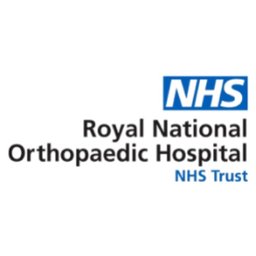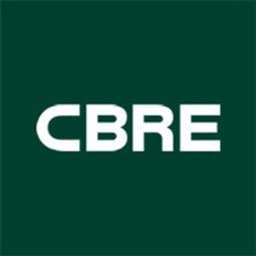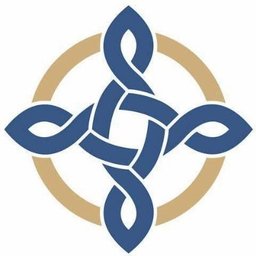To provide efficient and administrative support to consultants and their teams
To work in close co-operation with staff and other health professionals to ensure a first class service.
To be an active and supportive member of the cancer department.
Please see the Job Description and Person Specification for further details.
Call Handling
Referrals Administration
Pathway Management & Bookings
Communication and Liaison
Supporting Clinical Teams
At the Royal National Orthopaedic Hospital (RNOH), we are committed to achieving the best staff experience in the NHS. In the 2023 NHS Staff Survey, we proudly:
Scored above the national average for the People Promises: "We are recognised and rewarded," "We are always learning," "We work flexibly," "We are a team," and for staff engagement.
Ranked #1 among all Trusts in North and Central London for all People Promises and themes.
Ranked #1 among all Acute Specialist Trusts for "We work flexibly."
At RNOH, we’re committed to being actively anti-discriminatory and actively inclusive. We recognise our brilliant people do brilliant work, and we offer rewarding careers, no matter what their background. We continue to strive to break down barriers to be the Trust where people come together because what they do matters, makes a difference and where they can thrive.
Joining our organisation means enjoying a wide range of staff benefits, including:
24/7 access to wellbeing support through our Employee Assistance Programme.
A Rewards & Recognition platform, offering opportunities to thank colleagues, send gifts, and access exclusive discounts.
A dedicated Staff Wellbeing Hub, providing a space to relax and recharge away from the work environment.
Salary sacrifice schemes for transport (season ticket loans, car and bike), electrical goods, and childcare
At RNOH, we are more than a workplace—we are committed to patients, to excellence and the wellbeing of our staff.
Call Handling
1. Answer inbound telephone calls promptly, and in a polite and friendly manner.
2. Respond appropriately to queries, using all available information sources to provide a response.
3. Proactively provide relevant and helpful information to patients and colleagues.
4. Responsible for resolving complex queries from patients or colleagues. Where a query cannot be resolved, responsible for identifying who can resolve the issue and ensuring resolution.
5. Make outbound calls as required to patients, GP’s and referrers.
Referrals Administration
1. Receive new referrals and check hospital data systems to see if the patient has been previously registered with a hospital number.
2. Register all patients who do not already have a hospital number, ensuring clear and accurate information is entered onto the Electronic Health Record (EHR) and that no duplicate records are created.
3. Record and capture patient information appropriately and in line with Standard Operating Procedures.
4. Ensure patient demographics are correct by checking with the patient at every encounter, highlighting any duplicate records and escalating to the medical records team.
5. Screen referrals and allocate the referral to the appropriate team, using knowledge and judgement to assign complex referrals to the correct area.
6. Use electronic patient information systems to scan, attach referrals, and create and action workqueues.
7. Review triaging information from consultants and action the required next steps, communicating a consultant’s decision not to treat or to accept the referral back to a patient, ensuring documentation is sent to the referrer and patient with the referrer and patient, as required.
8. Contact referrers to clarify the information provided in referrals if this is unclear or incomplete.
9. To action Advice and Guidance (A&G) requests on the e-RS system with responses from the clinical team, escalating where required.
10. Manage the e-RS (e-Referrals System) worklists to ensure ASIs (appointment slot issues) and referrals are appropriately managed, escalating where required.
11. Use tact, negotiation and persuasion to ensure that referrals are triaged by the clinical team in a timely fashion, and follow up with clinicians where referrals are not triaged in the expected time frame.
12. Dispose of paper referral documentation in line with the Trust’s Information Governance policy.
13. Responsible for liaising with the commissioning team, in order to identify NHS eligibility for treatment.
Pathway Management & Bookings
1. Responsible for the administrative work within a designated specialty or department.
2. Book and reschedule admissions, new, follow up and diagnostic appointments, in line with the Trust’s Access Policy and Cancer Waiting Times Operational Policy, taking responsibility for complex booking and rescheduling.
3. Ensure patient pathway status is identified and proactively monitor the pathway to ensure that all elements of patient care are scheduled in line with regulatory access targets (e.g. RTT – referral to treatment targets, DM01 – 6 week diagnostic target and various cancer targets) and as set out in the Trust’s Access and Cancer Waiting Times Operational policies.
4. To review the patient tracking list (PTL), participate in PTL meetings and identify potential delays or issues with a patient pathway or potential breaches, and take preventative steps to avoid these, i.e. chasing diagnostic tests, results of tests. Ensure relevant tracking information is up to date.
5. Responsible for the management of key workqueues to address data quality issues, managing patient activities (e.g. appointment bookings) and other administrative tasks.
6. To ensure that no patient is 'lost to follow up' and that all patients are appropriately managed on a waiting list within the electronic health record.
7. Generate appointment letters for patients and sending relevant information or preparation to patients in advance of their appointment.
8. Ensure adequate preparation for clinics or admissions, receive and collate reports of investigations such as blood tests and x-rays, and preparing information for clinical teams before the next clinical appointment of the patient.
9. Responsible for procuring items related to patient admissions, or contacting theatres for equipment.
10. Proactively identify potential capacity issues and work with the clinical and managerial teams to address the issue, using analysis and problem solving skills.
11. Responsible for identifying vacant slots and filling them, to ensure maximum clinic and theatre list utilisation.
12. To liaise with consultants and their teams to monitor and ensure correct case mix on theatre lists, making appropriate staff aware of any changes, including Bed Management and Theatre Management using the agreed processes.
13. Process clinic or theatre list cancellations, amendments or reductions and ensure that the associated administration is completed and that patients are informed.
14. Ensure patient who have experienced cancellations are allocated new dates within the specified time limits.
15. Investigate any patient DNAs or deferrals, communicating information to the clinical team as appropriate, updating the systems and waitlists accordingly.
Communication and Liaison
1. Communicate clearly, effectively and appropriately with the multidisciplinary team, patients and their family, visitors or carers, and other clinicians involved in the care of the patient, e.g. General Practitioners.
2. Manage and answer telephone calls related to the service in a courteous and prompt manner.
3. Deal with stressful situations that may arise when dealing with patients who are anxious or distressed, or where there are barriers to understanding, using tact, diplomacy and empathy at all times and in line with Trust values.
4. Ensure both verbal and written communication is clear and accessible to patients and visitors.
5. Generate and send patient letters and information leaflets as appropriate and amend letters and patient leaflets if required to ensure that information distributed to patients is accurate and current.
6. Using hospital information systems, produce accurate correspondence for patients, GP’s and others involved in care, and ensure its timely dissemination to stakeholders, meeting relevant Trust KPIs e.g. clinic letter turnaround. This may include the transcription and typing of tapes/notes. Correspondence for clinically urgent and cancer MDT outcomes should be prioritised.
7. Resolve complex queries, using analysis, experience and judgement to determine when to pass the caller on to a member of the clinical team, or when to escalate the call to a senior colleague. Where calls are passed on, ensure that the caller is reassured regarding expected response times and has further contact details if necessary.
8. Use advanced communication skills to resolve complaints or conflicts that may have been escalated upwards for resolution.
9. Contact patients as required, for example to remind them of their appointment, or when there are short notice cancellations.
10. Receive and respond to letter, e-mail & in-basket queries, monitoring, managing and triaging email correspondence to generic inboxes.
11. Arrange for an interpreter where required.
12. Respond to queries from referrers and resolve their queries where possible, escalating to colleagues as required.
13. Co-ordinate appointments and procedures at other hospitals and organisations, where a patient pathway requires input from external providers.
14. Support patients to register for the patient portal.
15. To establish and maintain strong communication links with the clinical team, attending weekly planning meetings and ensuring lists are managed in a clinically appropriate manner as guided by the team.
16. Oversee all outcomes from clinic, making sure patient attendance, imaging requests and therapy requests have been actioned by clinic team
Supporting Clinical Teams
1. Organise meetings for the clinical team, acting as secretariat for specialty meetings as required, which includes agenda preparation, minute taking, updating action trackers for example.
2. Provide diary management and support to the clinical team, including processing their leave arrangements, cancelling clinics and rebooking appointments when leave is approved.
3. Support with the preparation of information for MDT meetings.
4. Facilitation of multi-disciplinary team meetings, as required, to ensure the meetings run effectively with all relevant patients are discussed.
5. Liaise with clinical and administrative staff to create lists for circulation prior to the MDT meetings.
6. Provide administrative support for multi-disciplinary team meetings, including the recording and distribution of outcomes to all concerned following the meetings, ensuring that this information is correct, complete and saved to the patient’s electronic health record.
7. Advise and support clinical teams on Trust administrative processes.
8. Support and assist new members of the clinical team, ensuring they are familiarised with the administrative service and have access to Trust systems upon commencement.
9. Support local department initiatives, e.g. coordinating and dissemination of responses to local patient surveys as part of audit requirements.
Please see the Job Description and Person Specification for further details.
Report job






